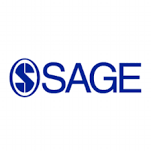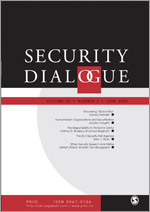Location
Founded in 1965, SAGE is a leading independent, academic and professional publisher of innovative, high-quality content.
Known for our commitment to quality and innovation, SAGE has helped inform and educate a global community of scholars, practitioners, researchers, and students across a broad range of subject areas.
With over 1,500 employees globally from principal offices in Los Angeles, London, New Delhi, Singapore, and Washington, D.C., we publish more than 900 journals and over 800 books, reference works and databases a year in business, humanities, social sciences, science, technology and medicine.
Believing passionately that engaged scholarship lies at the heart of any healthy society and that education is intrinsically valuable, SAGE aims to be the world’s leading independent academic and professional publisher. This means playing a creative role in society by disseminating teaching and research on a global scale, the cornerstones of which are good, long-term relationships, a focus on our markets, and an ability to combine quality and innovation.
Leading authors, editors and societies should feel that SAGE is their natural home: we believe in meeting the range of their needs, and in publishing the best of their work. We are a growing company, and our financial success comes from thinking creatively about our markets and actively responding to the needs of our customers.
Members:
Resources
Displaying 6 - 10 of 12Creating learning and action space in South Africa’s post-apartheid land redistribution program
This paper uses the case of South Africa’s latest land redistribution strategy known as the Proactive Land Acquisition Strategy, to explore whether, and how, research can have direct and positive impacts on beneficiaries of land reform. The study is situated within the practice of action research: to explore how it can generate knowledge that can be shared back and forth between stakeholders, as well as how it may ignite changes that the participants desire. The findings are that Proactive Land Acquisition Strategy is not meeting the overall goals land reform.
Local experiences of liberal peace: Marketization and emergent conflict dynamics in Sierra Leone
Over the past 20 years scholars have repeatedly highlighted the complex relationship between conflict, peace and economics. It is today accepted that economic factors at the global, regional, national and local levels can promote conflict in various ways and that economic factors are therefore central in establishing a sustainable post-conflict peace. However, while the scholarly literature includes much nuance regarding the precise nature of these complex relationships, practices of peacebuilding are often far less nuanced.
Intrastate peace agreements and the durability of peace
The article debunks the conception that peace agreements are all equal. Distinct from the conventional monocausal assessment, I view the peace agreement as a cohesive whole and evaluate its strength in terms of its structural and procedural provisions. I use data on the length of intrastate peace episodes during the period from 1946 to 2010. My key finding is that the design quality of the peace agreement has a significant impact on the durability of peace.
Financing Cities : Fiscal Responsibility and Urban Infrastructure in Brazil, China, India, Poland and South Africa
This book, Financing cities, emphasized
case studies on different topics to look at the interactions
of a range of variables and factors and to see how they fit
together. Rather than require each case to follow the same
format, the authors have structured their papers around the
issues that matter most from their perspective in addressing
the topic in hand. The first part of this book presents case
studies describing the framework established at the national
Hybrid Peace: The Interaction Between Top-Down and Bottom-Up Peace
This article is interested in the interface between internationally supported peace operations and local approaches to peace that may draw on traditional, indigenous and customary practice. It argues that peace (and security, development and reconstruction) in societies emerging from violent conflict tends to be a hybrid between the external and the local. The article conceptualizes how this hybrid or composite peace is constructed and maintained. It proposes a four-part conceptual model to help visualize the interplay that leads to hybridized forms of peace.





